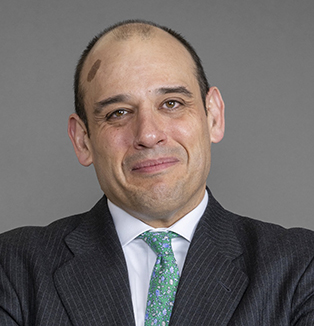
Spain
Is there a standard contract period of an HMA?
The term of the agreement varies depending on the manager's policy or standard terms.
However, the trend in Spain in recent years, in line with international trends, has been to reduce the term of contracts or to include clauses that allow contracts to be reviewed every few years. As a general rule, for HMAs, the duration ranges from 5 to 15 years, although it is more common to agree between 10 and 15 years. Previously, these contracts were up to 25 years in duration.
Is the term usually fixed? Are early exit or similar options included (contractual or implied)?
The norm is for an HMA term to be fixed, with contractually fixed break options or early termination rights for either party, generally based on performance.
On the other hand, clauses that allow for the tacit extension of the HMA are becoming increasingly popular. In most cases, this extension is for a shorter period of time than the initial period, not reaching five years.
Is it usual to include fees / liquidated damages for early termination?
Exit fees for early termination, other than due to operator default, are common. The level of fees can vary widely depending on a number of issues (eg location, brand, scale).
Normally, the parties agree on a notice period of 6 to 12 months for early termination of the contract, which must be for just cause. Failure to comply with this notice period may lead to liquidated damages.
What is the usual position in respect of renewal?
Usually it is possible to agree a renewal by mutual consent, but the owner has the final say. Additionally, as mentioned above, tacit extension clauses are becoming increasingly common.

Spain
Is there a standard fee structure for HMAs (eg base + incentive)?
Generally, on the one hand, there will be a base commission for the gross revenues obtained, which will be translated into a fixed percentage of the total amount of these revenues, normally between 2% and 4%, although it will depend on the category of the hotel being managed and the type of operator. However, it is possible for the parties to make the remuneration dependent solely on the total sales of the hotel.
On the other hand, the parties may agree on an incentive fee, which corresponds to a percentage of the gross operating profit.
Finally, other fees could be added to these main fees, such as the Marketing Fee, the Direct Reservation Fee and the Non-Direct Reservation Fee.
What other fees and charges are there (such as royalties, accounting, marketing, license fees, etc.)?
Royalties sometimes apply for branded operators. Having a marketing fee is usual.
Are owners typically required to set aside funds for fixtures and fittings?
Yes, this is standard. The amount varies depending on type and age of asset and particular operator.

Spain
What is the usual standard imposed on an operator in respect of the operation of the hotel?
The standard is diligent professional performance, and performance tests are set in the HMA (together with a termination right for failure to meet such tests).
What performance measures are commonly used in the jurisdiction?
Performance tests are standard, but the type and nature can vary depending on the operator, nature of the hotel, location, etc. A standard performance test would consider achievement against budget and/or RevPAR against a competitive set of local or similar hotels.
Is an operator or owner guarantee common in the jurisdiction?
Guarantees on both sides tend to be unusual.
What is the usual position in respect of employees? With whom does the liability for the employees sit?
The owner assumes the obligations of the employment relationship at all times and employs the labor force of the hotel, with the exception, in some cases, of the hotel manager or another employee in a relevant position with organizational responsibility, who could be employed by the operator. On the other hand, the operator has the right to hire and dismiss personnel.
Is it usual to have a non-compete clause, eg that no other property with that brand can open within a certain radius?
Non-compete clauses are common and usually negotiated. With branded operators radius clauses are common.
Who is responsible for insurance?
The owner is responsible for the cost of property insurance (even if sourced by the operator) and the operator may put operational insurances in place (albeit this would be an operating expense). In any case, the operator shall take out an insurance policy to cover its civil liability vis-à-vis third parties as operator of the hotel.
Does the HMA give rights in real estate in the jurisdiction?
Not the HMA itself. If the HMA included a purchase option on the hotel, this could be recorded in the Land Registry.
Does the HMA need to be recorded against the property, if this is possible in the jurisdiction?
No, this is not possible in Spain.
Where financing is taken, is it standard to obtain a Non-Disturbance Agreement (NDA) as part of a management or lease agreement?
It is not standard, but it is not unheard of, and the idea is becoming slightly more common.
What other agreements usually sit alongside an HMA in the jurisdiction?
There could be a number of different agreements depending on the operator, these include:
- (Brand) License Agreement
- Central Services Agreement
- Technical Services Agreement – on a new build or redevelopment
- Central Reservation
- Services Agreement.

Spain
What are the standard rights / restrictions in respect of transfer / sale of the hotel?
Given that HMAs are characterized by their long duration, operators seek to agree in the agreement that the same will survive regardless of any changes that may occur in the ownership of the company. It is now relatively common to introduce a non-disturbance clause in favor of the operator. This clause would allow the operator to have the right to continue to manage the hotel and to receive its agreed fees. On the other hand, exit fees are sometimes agreed in case the purchaser does not want to be subrogated to the owner's position.
When a managed hotel is sold (either asset or share deal), is it usual in the jurisdiction that either the Operator's consent is required for the sale, or that the hotel may only be sold if the HMA transfers with the hotel?
The operator's consent to the sale is not required by law and it is rarely required in the contract, though in practice it is typical for the operator to be involved in the transaction up to a certain point as it controls most of the information on the asset.
Do HMAs commonly include a right of first refusal for the operator to purchase the hotel?
No, HMAs are the preferred option for operators that opt to be asset-light and therefore they rarely ask for a possibility to purchase. Rights of first refusal are common in hotel leases, though.
Is it usual to include provisions which enable the sale of the property with vacant possession ie without the brand?
No, operators generally try to protect themselves by including exit fees in the event that the HMA is terminated early due to the sale of the property.

